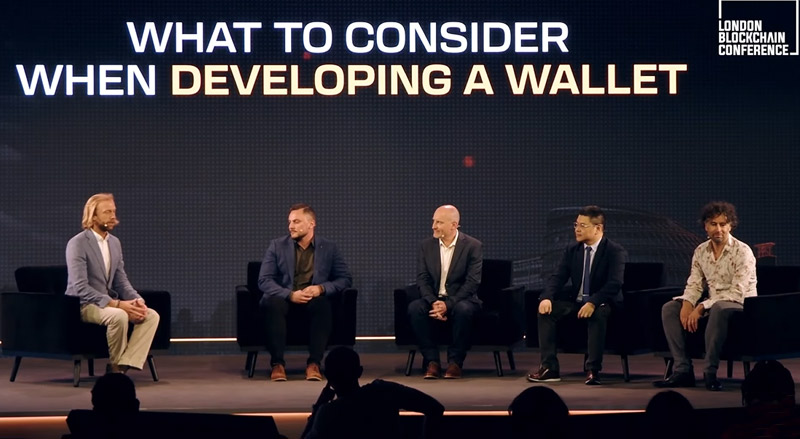Wallets are the gateways to the world of digital finance, serving as the digital containers that hold the keys to one’s cryptocurrency wealth. As the cornerstone of the blockchain ecosystem, these wallets not only store the cryptographic keys necessary for accessing and managing Bitcoin holdings but also play a crucial role in securing and facilitating the transfer of these digital assets.
In a landscape where financial sovereignty and security are paramount, understanding the various types of Bitcoin wallets and their intricacies is fundamental for anyone looking to venture into the world of digital currencies.
- Lorien Gamaroff (Co-Founder & CEO at Centbee);
- Michal Pawelski (Co-Founder & CTO at 4chain studio);
- Lin Zheming (Co-Founder & CEO at DotWallet);
- Kevin Healy (Content Specialist at BSV Blockchain);
- Liam Missin (Consultant at TAAL).
Why start from scratch when building a wallet?
Zheming began the panel by discussing when exactly a business should consider developing a wallet on Bitcoin. He noted that while these companies always have the option to build their wallets, it’s often far more efficient to use one of the wallets that already exist in the ecosystem.
This was reiterated by Gamaroff, who noted that there are several existing tools and wallets, such as those developed by TAAL and nChain. This means ‘the difficult part’ of developing a wallet today is more often about how to make it stand out and be competitive compared to existing offerings. Other topics included whether to build wallets for web/mobile-first, the importance of onboarding and exchanging to FIAT, and UX considerations.
The panel also discussed the importance of regulatory certainty in the space, both from the perspective of developers and from the perspective of users and reiterated the fact that the BSV blockchain is pro-regulation.
Wallet survey
The BSV Association recently conducted a survey of members in its ecosystems to look at the different ways it can improve the digital wallet experience. The survey, which was conducted in July 2023, focused specifically on how the user experience around digital wallets can be improved. Participants were also asked about their personal preferences around choosing a wallet, how they access and use their wallets and the importance of privacy and customer support.
The survey results show that wallet users have clear preferences when it comes to choosing a wallet. The majority (75%) said that they consider a wallet and provider’s reputation, while 70% said that a good user interface is also vital.
Also important are security features (67%), low transaction fees, and integration with other platforms (53%) are all also important factors when choosing a wallet. Notably, the data shows that users are relatively platform agnostic when choosing how they access their wallets, with most users indicating that they are happy to use a mobile app, desktop app or browser extension, depending on the situation.
Users typically topped up their wallets by purchasing Bitcoin from exchanges (41%) and receiving funds from others (40%). However, the survey shows that users are far more split on their preferences when it comes to sending money with 37% opting to copy an address, 31% indicating that they would scan a QR code, and 21% using a contact list.
You can find the full results here.
